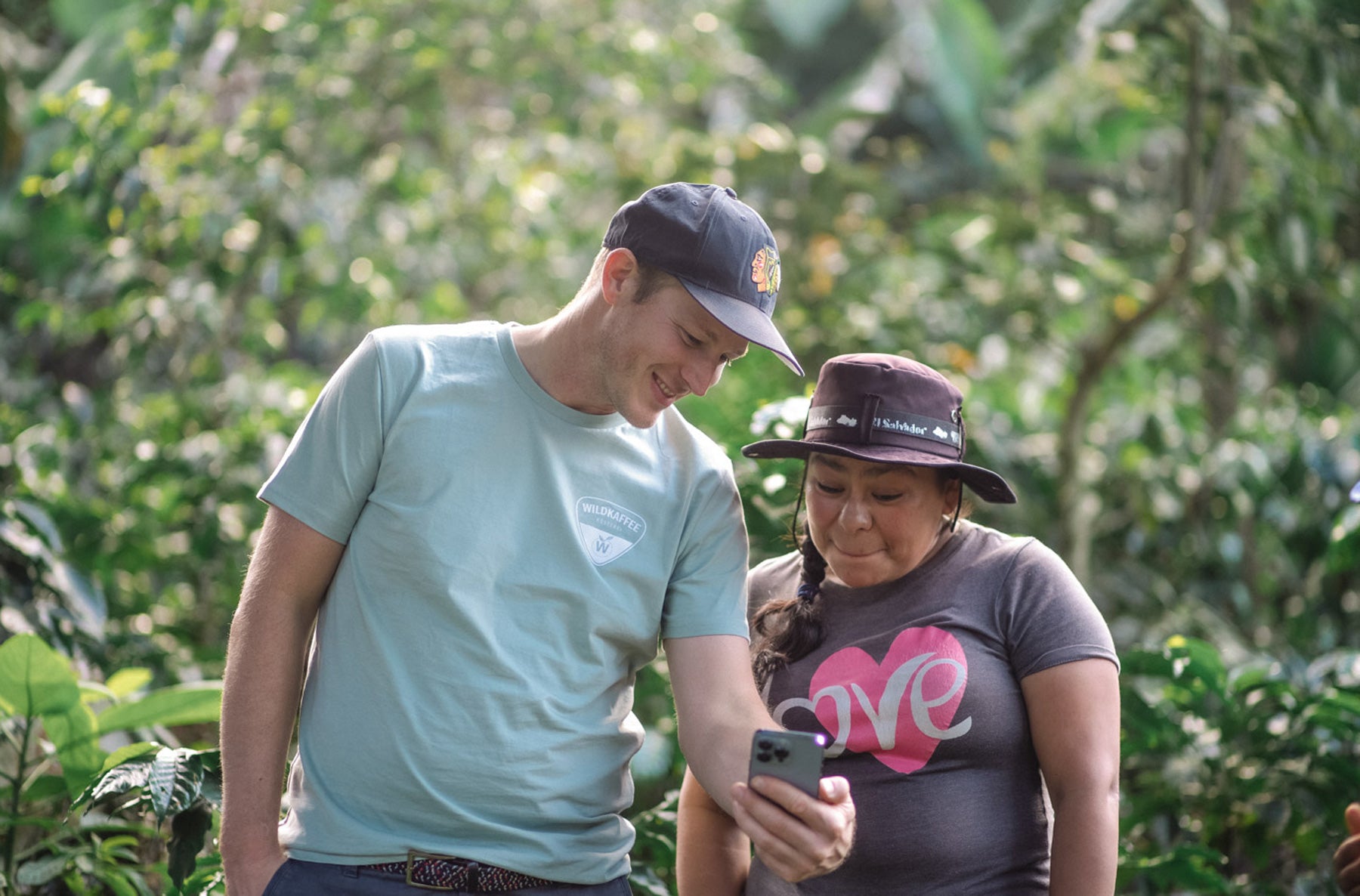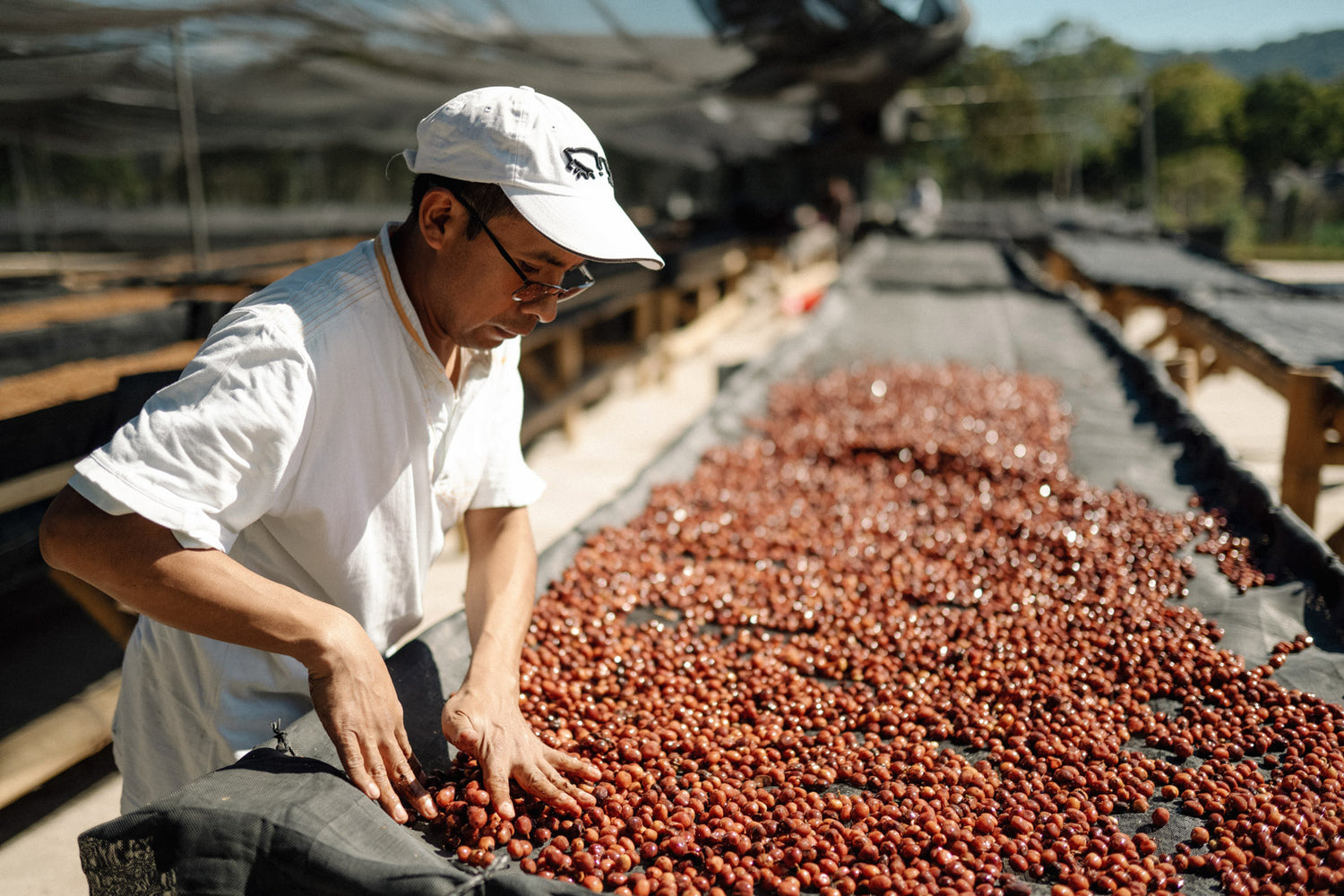Our excellent and long-standing relationships with coffee farmers in the countries of origin such as Brazil, El Salvador, Rwanda, Colombia and Guatemala have resulted in not only constant partnerships but also close friendships. This not only simplifies the exchange between farmers and us as a roaster, it also offers advantages for both sides: We get the best quality green coffee, which the farmer is compensated for through fair and direct payment. Direct trade is therefore the be-all and end-all when it comes to tasty coffee. That is why we are constantly expanding direct trade.
But what does direct trade actually mean? In general, the definition of direct trade is that the green coffee is sold directly from the farmer to the roasters without any middlemen who earn money. The advantage is obvious: the farmers earn the full price for their coffee, which they have grown and produced with the greatest dedication and full commitment. But there are also small but subtle differences in direct trade that we would like to share with you. You can find all the information about direct trade on this page.
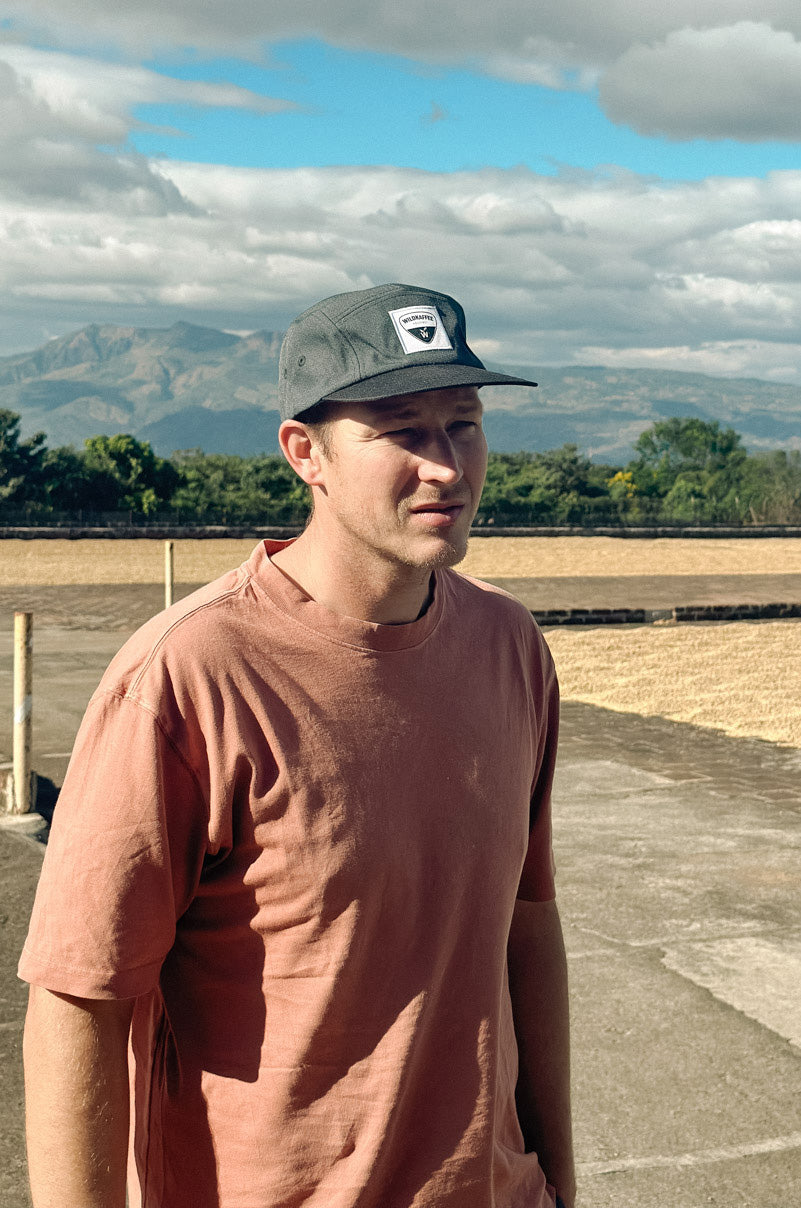
How does direct trading work?
Direct trade in coffee does not just mean that the coffee is traded directly from farmer to roaster. It offers the farmer the chance to trade his coffee at a really fair price. So that all costs are covered and every worker on the farm receives a fair wage for their work. The fewer intermediate steps a green coffee has to go through, the better it is not only for the producer, but also for us as the recipient of the goods. Through direct trade, we also know all the facts behind the production of the green coffee, because direct trade also means direct contact with the farmer. This means that the country of origin, the region, the specific farm or cooperative, as well as the type of harvest and further processing are clearly understandable for us. Once we have found a green coffee, it is prepared for export directly by the farmer and delivered to the Wildkaffee roastery.
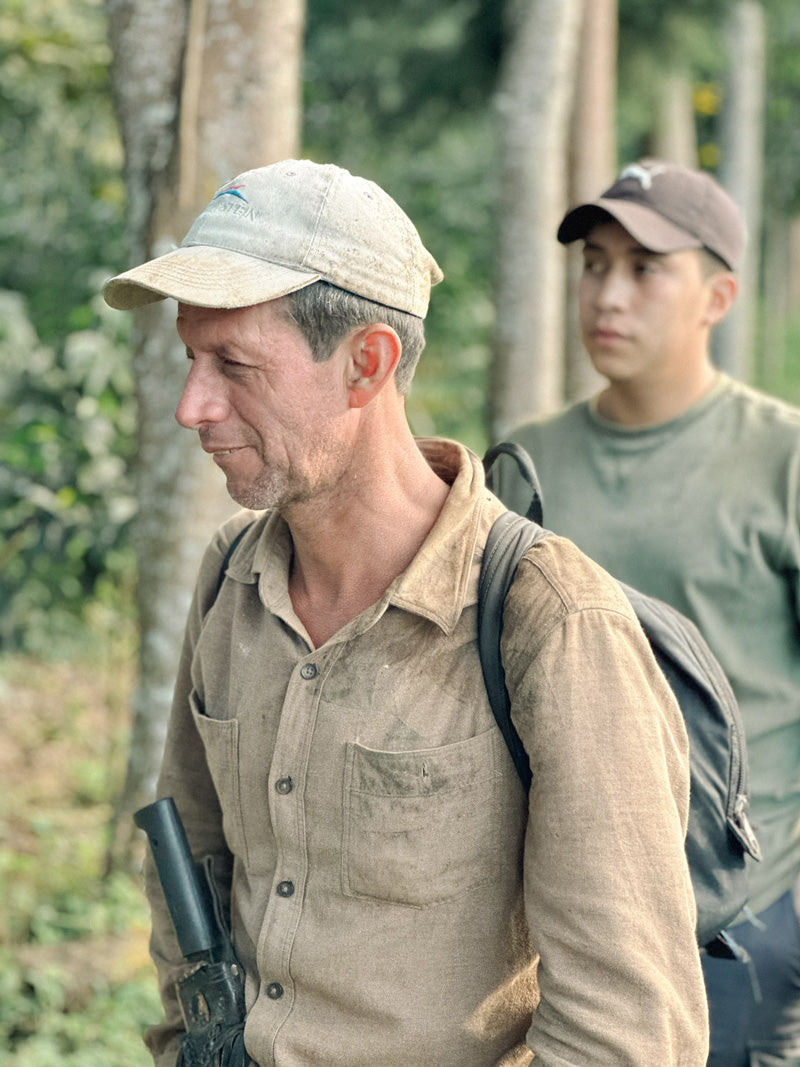
Direct trade and quality
Direct trade not only has advantages for pay and living conditions on the coffee farms. The producer of the green coffee knows exactly who he is working for. This increases the incentive to do things really well. The question of why is very easy to answer.
The improved quality of the green coffee ultimately results in a higher price in direct trade. The higher revenue ultimately leads to greater success and reputation in the global coffee business. Direct trade therefore not only improves the quality of the beans. It also invests in the quality of life of the farmers and their families. In addition, the buyers, usually the roasters, can express special wishes and know what goods they can expect from the farms.
So that we can convince ourselves of the best quality of the selected green coffee, we have to subject the beans to a strict quality control. An important tool for this is cupping. Cupping is nothing other than tasting the coffee. It is tasted for taste and quality. In direct trade and exchange with the farmers, cupping is often carried out directly during our visits to the farms. If we are not on site, we get so-called samples, i.e. green coffee samples, sent to the roastery. These are then test-roasted and tasted by cupping. If we are convinced by the quality and taste of the harvest, the coffee is ordered and finds its place in our range.
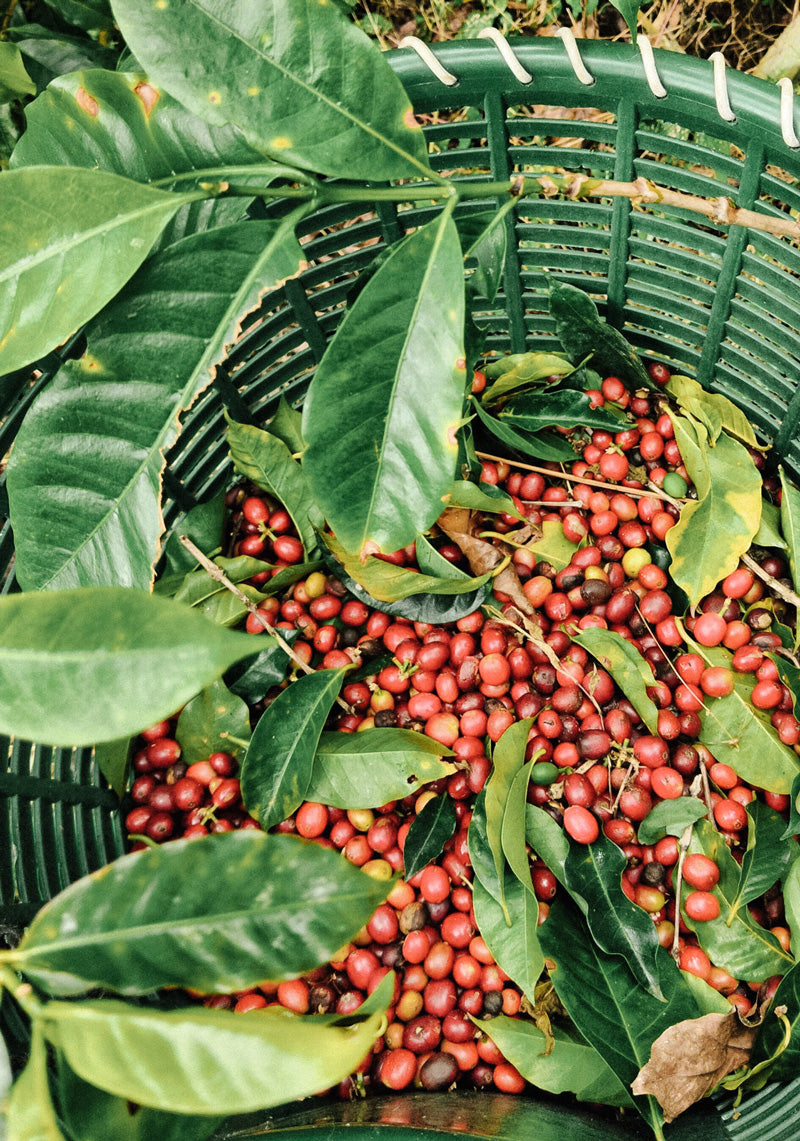
Direct trading - risks
As with everything, there are of course risks involved in direct trade. This does not even have to be done with malicious intent. For example, if a harvest does not meet the desired quality. The buyer can then demand a lower price or even refuse to accept the green coffee. For the farmer or the cooperative (more on this in the section below), this means that they have to look for other sales channels. It is also problematic if the roaster does not receive the quantity and quality that was agreed upon. Direct trade is therefore not without risks. Coffee is a natural product and anything can happen at any time. However, even with this fact, one must not forget that coffee harvests differ from year to year. This is mainly due to the climatic influences in the regions of origin of the coffee. The harvests of different years therefore usually have slight differences in taste.
What exactly are cooperatives?
In some countries, such as Ethiopia, direct trade is actually not possible without restrictions. In countries where coffee cherries are grown in small quantities in gardens or by farmers with small areas, the harvest is taken to external washing stations for processing. In other words, stations where the coffee cherries are processed into green coffee. These are usually run by so-called cooperatives, i.e. an association of several farmers who operate the processing station together. Often, however, the washing stations are also operated independently. In this case, direct contact is then the responsibility of the station operators. The same applies to cooperatives of several farmers. There, too, direct contact is more likely to be made with the board of the cooperative. In this case, too, close relationships and fair payment pay off, because there is regular exchange within the cooperatives too.
Higher price for directly traded coffee
Consumers often criticize the fact that advertising with direct trade or direct trading only serves marketing purposes. In fact, these opinions are not entirely unfounded. If you take a closer look at the Fairtrade seal, you will notice that many other people also earn money. You can find out more about this here in our coffee blog . However, you should always keep in mind that serious direct trading, as we have been doing for years, rarely has marketing purposes. Behind it is the best coffee quality, more information about the product and its background. Ideally, coffee lovers will become more aware of the product coffee and weigh up their consumption behavior accordingly. We, the Wildkaffee roastery, want to give you the appropriate incentives for this every day.
